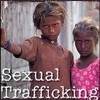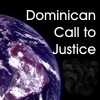New
York State Agrees on Law Against Sexual and Labor Trafficking
ALBANY, May 16 — State lawmakers and Governor Spitzer
have agreed to make labor and sex-trafficking felonies, breaking
a deadlock on an issue many in the state thought should have
been resolved long ago. The successful passage of the legislation
marks an important milestone in fighting the sex slavery trade,
the third largest criminal industry in the world. Trafficking
is one of the most difficult crimes to prosecute and most insidious
problem to solve.
 “New
York is finally joining the ranks of other states in ensuring
that those who exploit innocent people and children and
cause extreme suffering are subject to strict punishment
under state law,” Governor Spitzer said in a statement. “New
York is finally joining the ranks of other states in ensuring
that those who exploit innocent people and children and
cause extreme suffering are subject to strict punishment
under state law,” Governor Spitzer said in a statement.
Advocates said the agreement reached between Mr. Spitzer and the
Legislature would give New York one of the toughest and most comprehensive
laws in the nation. On May 2, a large contingent of religious women,
organized by The New York Coalition of Religious Congregations – Stop
Trafficking of Persons (NYCRC-STOP) met face to face with law makers
in Albany. Jeanne Shary, OP (Sparkill) spearheaded the Dominican
participation in that effort.
New York State Anti-Trafficking Coalition's Dara Kerr said, “This
legislation fulfills the six essential elements the Coalition has
been fighting for these past three years and longer.” The
bill has strong provisions on penalties, patronizing prostitution,
sex tourism, the definition of trafficking, services for trafficking
victims, and once passed into law, will be the strongest state
legislation on trafficking in the Nation.
"This amazing accomplishment would not have happened without
the leadership and vision of Governor Spitzer. It would also
not have happened without the strength and outstanding advocacy
of this Coalition," said Kerr.
Although there are federal laws against human trafficking — essentially
a modern form of slavery — some state lawmakers and advocacy
groups say they are insufficient. Federal law enforcement has focused
mostly on the largest criminal trafficking rings, rather than smaller
operations like sweatshops and brothels, advocacy groups say.
At least 29 states already have laws specifically addressing human
trafficking. The State Department has estimated that 14,500 to
17,500 people a year are brought into the United States and then
used for forced labor or sex, although experts say such statistics
are inexact estimates.
|
Six
Points to Effective Anti-Trafficking Legislation
1. Define trafficking with reference to the typical
kinds of fraud and coercion that traffickers commonly
use on their victims, rather than the narrow doctrine of "imminent
threat of force."
2. Create strong penalties for the traffickers-enough
to provide meaningful deterrence.
3. Address those who patronize the sex industry,
as they create the demand that makes and
creates the motive for trafficking.
4. Clarify existing law on sex tourism in order
to stop the sex tour operators who conduct business.
5. Create remedies for victims of trafficking, including
a defense for trafficked individuals who are sometimes arrested for
the very acts of prostitution that they are coerced to perform; allow
victims to recover restitution and damages from traffickers.
6. Provide services to assist trafficking victims
in rehabilitating their lives.
|



 “New
York is finally joining the ranks of other states in ensuring
that those who exploit innocent people and children and
cause extreme suffering are subject to strict punishment
under state law,” Governor Spitzer said in a statement.
“New
York is finally joining the ranks of other states in ensuring
that those who exploit innocent people and children and
cause extreme suffering are subject to strict punishment
under state law,” Governor Spitzer said in a statement.